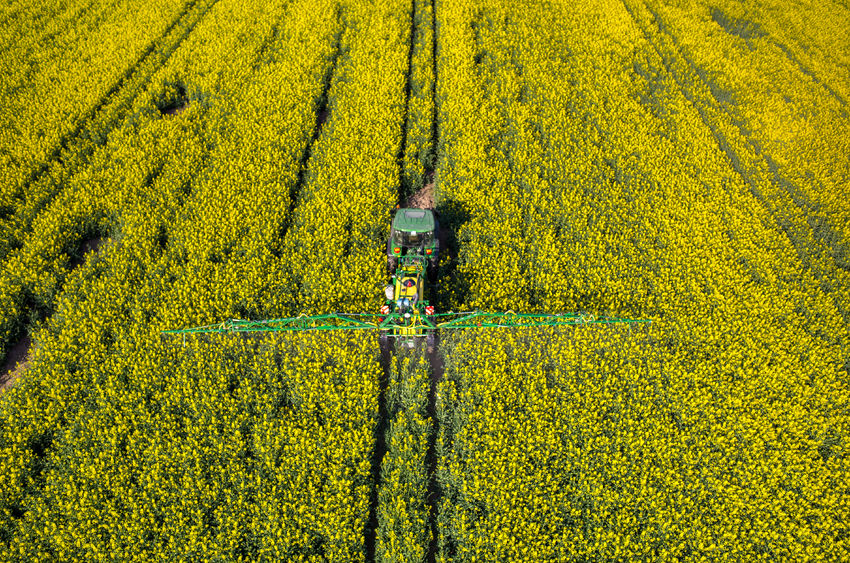
Farmers are being urged to ensure they have all the options available to them to combat pests, weeds and diseases in their crops, following a turbulent period of uncertainty surrounding the use of plant protection products.
The advice, by the National Farmers' Union, follows news of the world's most-used herbicide glyphosate gaining approval within the EU this week, following a turbulent period of uncertainty and deadlock among EU Member States.
The twenty-eight Member States met at an appeal committee on Monday (27 November) to seek out a five-year renewal. 18 countries voted for, 9 against and one abstained.
The advice comes as the technical and business event for arable and mixed farmers CropTec gets underway. The NFU has urged farmers to use an integrated pest management plan which embraces all elements of crop protection so that pests, weeds and diseases can be managed.
NFU Vice President Guy Smith and combinable crops board vice chairman Robert Lockhart are chairing seminars at the event.
Mr Smith said: “Effective crop protection is essential to food production in the UK. It is also vital that farmers recognise the importance of professional and responsible stewardship.
“Like most growers I was relieved to see glyphosate given a five year reauthorisation by Brussels earlier this week.
“It’s now important that growers continue to have access to key herbicides like glyphosate by demonstrating judicious use and showing regulators the importance of these chemicals to crop production.”
NFU combinable crops board vice-chairman Robert Lockhart said there have been some exciting developments in non-chemical pest, weed and disease control and developments of new protection products.
“Farmers always try to use non-chemical plant control before looking for a chemical solution, and as technology improves these options are becoming more readily available,” Mr Lockhart said.
“However, the use of plant protection products is integral to any pest management plan and farmers cannot rely on automation alone.
“Farmers must be able to utilise all options on all scales, and this is why the development of new active ingredients and products – and making them safe and accessible – is so important.”
'Over-zealous'
MEPs in Brussels have been warned against 'over-zealous' and 'ill-considered' banning of important plant protection products in the EU.
The EU's Agriculture Committee heard the message from one of Britain's leading growers at a hearing on Sustainable Plant Protection.
John Chinn, chairman of the UK's Centre for Applied Crop Science, said the EU was not performing well when approving or banning plant protection products.
He told the hearing: "A failure to distinguish between hazard and risk is an essential part of the confusion about perceived threats from or to our environment; in general hazard identification is easy and often speculative; risk evaluation is generally complex and demanding.
"Rational responses are not invariable. There is an extraordinary disregard for well documented risks while others, of marginal significance, distort public and private spending decisions.
"These factors, coupled with a perverse preference for natural toxicity over synthetic safety, lead to an indifferent performance in risk management in the community."
European farming organisations have also warned of the 'irrevocable impact' on crop production without the use of plant protection products.
A study published by agricultural cooperative Copa & Cogeca using data from 6 countries shows that due to the ban on neonicotinoid seed treatments, there has been a 10% drop in the oilseeds area since 2013 and a rise in farmers costs and a cut in their incomes as no alternative products exists.
